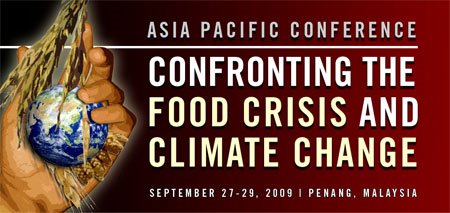Day Two featured four interactive and lively workshop sessions: Biodiversity-based Ecological Agriculture (BEA), Gender Justice, Climate Justice, and Food Sovereignty. Following the sessions, group members shared their discussions and focus areas with the group in the final evening plenary. Below are some of the key points from each workshop.
BEA
The group discussed the elements of BEA, including the aims to improve livelihoods and support small producers and rural communities. They also discussed the opportunities for BEA, as well as the gaps, needs and plans going forward to the World Food Summit in Rome. Some of the opportunities are: premium pricing for organic and fair trade products, rich local knowledge, lobbying for local food and distribution systems, among many others. The group also discussed the gaps, including the lack of support for farmer research, decreases in biodiversity, and promotion of BEA at the UNFCCC, WFS and FAO.
Gender Justice
Ten people attended the session on Gender Justice, which was guided by the presentation by Dr Irene Fernandez earlier in the day. Strong suggestions for collective action came out of the session. Some of the action plans included: information and analysis of policies, linking organizations, policy advocacy, research and documentation, a focus on the impact on women, and the important call that women not be seen as victims, but as VOICES in the struggle against climate change.
Climate Justice
The Climate Justice group came up with a very focused plan of action for the COP 15 activities in Copenhagen in December. Several plans, including increasing the involvement of indigenous people and women, holding a national conference on climate change, networking with the media, holding side events at the COP 15 meeting, and sending a 10 person delegation to Copenhagen were suggested. The plans were further strengthened because the group set out a timeline and were organization-specific.
Food Sovereignty
The Food Sovereignty group had 17 participants from 7 countries. The differences between food sovereignty and food security were explained, and then there was a review of the People’s Statement on Food Sovereignty. Key strategies included focusing on traditional knowledge and the experience of indigenous people and small producers, fighting for fair wages, access to land, disaster response and national government policies. Mobilization activities were suggested, including furthering the action of YORA and holding events as part of Peasant Week in October. Themes included social environmental justice and strong policy advocacy. The IPC and IAASTD were brought up as venues for international policy advocacy and action.
Tuesday, September 29, 2009
Subscribe to:
Post Comments (Atom)


No comments:
Post a Comment